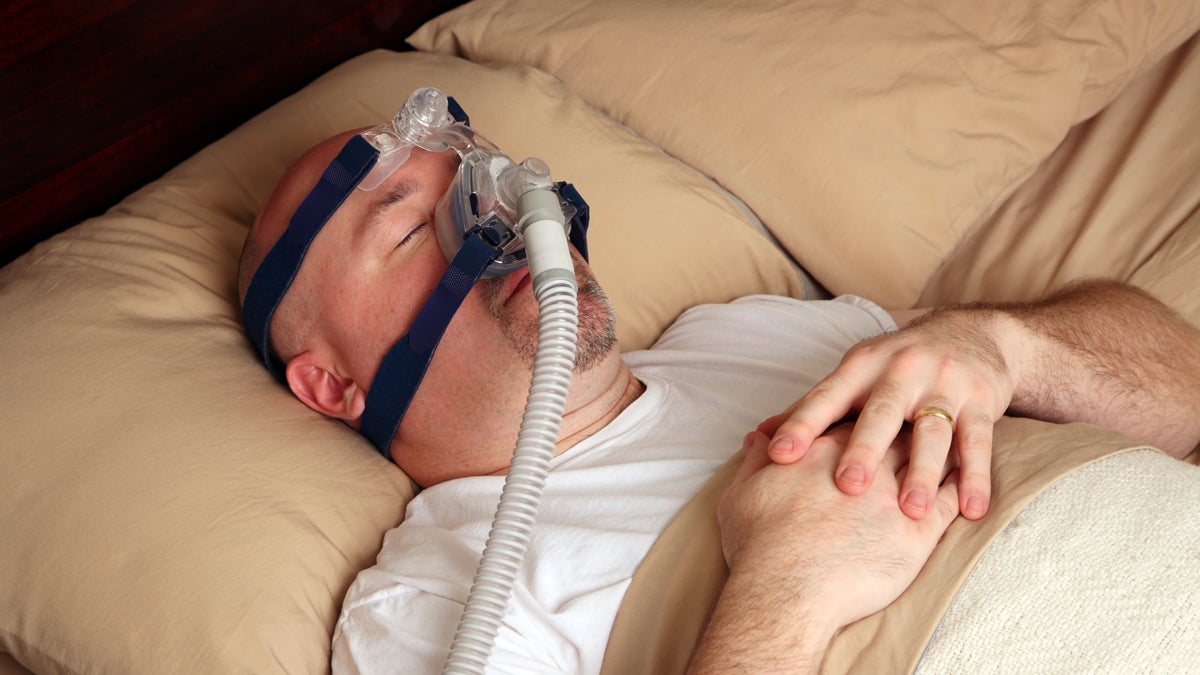Testing for sleep apnea at home just as effective as lab study, researchers find
 Photo via ShutterStock) " title="ssapneax1200" width="1" height="1"/>
Photo via ShutterStock) " title="ssapneax1200" width="1" height="1"/>
(Photo via ShutterStock)
Testing for sleep apnea is a booming — and pricey — business. Symptoms include loud snoring and nighttime grunts and gasps that can interrupt sleep and can cut off breathing. People usually find out they have the condition after visiting a sleep laboratory. But cheaper, at-home testing is increasingly popular.
“It’s actually quite a comfortable system, and it doesn’t disturb the sleep as much as coming into the sleep laboratory, sleeping in a strange bed, in a strange environment with lots of wires attached to you,” said Sam Kuna, an associate professor of medicine at the University of Pennsylvania Medical School.
In a new study, Kuna and his team at the Philadelphia Veterans Affairs Medical Center found that at home testing is a good entryway to solid treatment.
Once they started treatment, patients in the study had similar improvements in depression and daytime sleepiness whether they were diagnosed through an at-home test or a visit to the lab.
“Ours was one of the first randomized controlled trials to show that people actually will have a similar outcomes — at less cost — using at-home testing than in the in-laboratory testing,” Kuna said.
In a sleep lab, a technician watches over patients all night long, keeping track of a long list of biofeedback. That intense monitoring pushes up the price of testing. Depending on their insurance, patients may pay as little as $800 or more than $5,000 for overnight in-the-lab testing.
For at-home testing, patients learn to hook themselves up to several wires, and the portable device tracks a much shorter list of physical responses including oxygen level and breathing.
In the VA study, at-home testing costs about $500 less than the sleep studies conducted in the laboratory.
Obesity is the greatest risk factor for sleep apnea. In recent decades, as Americas have gotten fatter, the number of people with sleep apnea has risen too.
Kuna says sleep apnea is more common than diabetes or asthma. People with the condition face a greater chance of traffic accidents, heart attack, stroke and high blood pressure.
Insurance companies and the Medicare program years ago began paying for at-home sleep tests, but Kuna said that was long before there was evidence that at-home test lead to equally good care.
WHYY is your source for fact-based, in-depth journalism and information. As a nonprofit organization, we rely on financial support from readers like you. Please give today.

